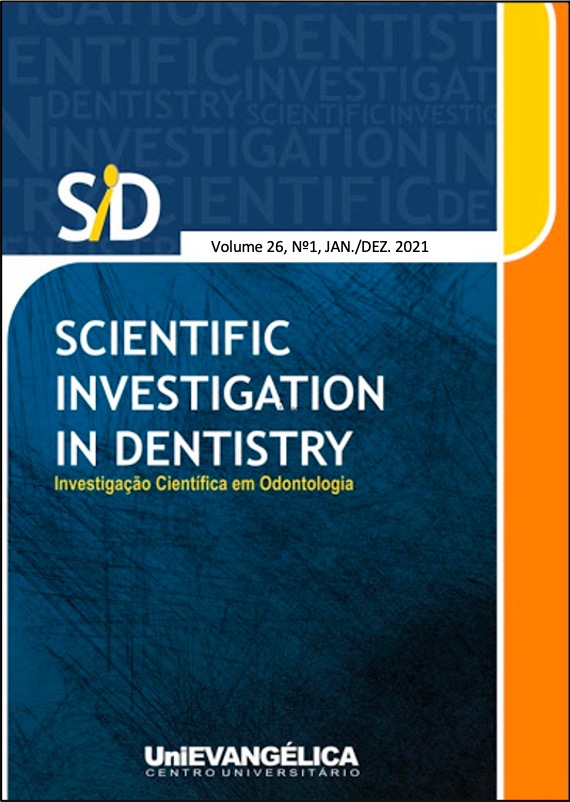Analysis of the knowledge of higher education professionals from the Family Health Unit on Oral Cancer
DOI:
https://doi.org/10.37951/2317-2835.2021v26i1.p40-48Abstract
Aim: To analyze the knowledge of dentists, doctors and nurses from the Family Health Units of Anápolis-GO, regarding oral cancer. Methods: Quantitative study with doctors, nurses and dentists from family health teams in the city of Anápolis-GO. Data collection took place through the Google Forms application. Data were collected on the demographic profile, knowledge about prevention, diagnosis and treatment, and attitudes and practices regarding the topic. Data were collected between 11/2020 and 02/2021, tabulated and analyzed using descriptive statistics, using the IBM SPSS 22.0 software. Results: Response rate of 11.6% (N = 25), 80% female, mean age of 36.4 years (SD = 12.0), graduation time between zero and 34 years. 60% (n = 15) consider their level of knowledge about oral cancer to be excellent or good. As for the highest prevalence, 80% (n = 20) mentioned the male gender, aged over 40 years 76% (n = 19) and 40% (n = 10) answered that squamous cell carcinoma is the most prevalent neoplasm in the mouth. 20% (n = 5) of the participants answered that they did not know about the most prevalent clinical characteristics compatible with the hypothesis of oral cancer and the majority 76% (n = 19) did not feel able to perform a biopsy. Most of the participants 88% (n = 22) expressed the desire to participate in an update course on the topic. Conclusions: Professionals know about mouth cancer although they feel insecure in face of some specificities and express a desire for training on the subject.
Downloads
Published
Issue
Section
License
Declaro que o trabalho de minha autoria foi submetido apenas para este periódico e por isto, não sendo simultaneamente avaliado para publicação em outra revista. Nós autores, acima citados, assumimos a responsabilidade pelo conteúdo do trabalho submetido e confirmar que o trabalho apresentado, incluindo imagens, é original. Concordamos em conceder os direitos autorais ao periódico Scientific Investigation in Dentistry.

